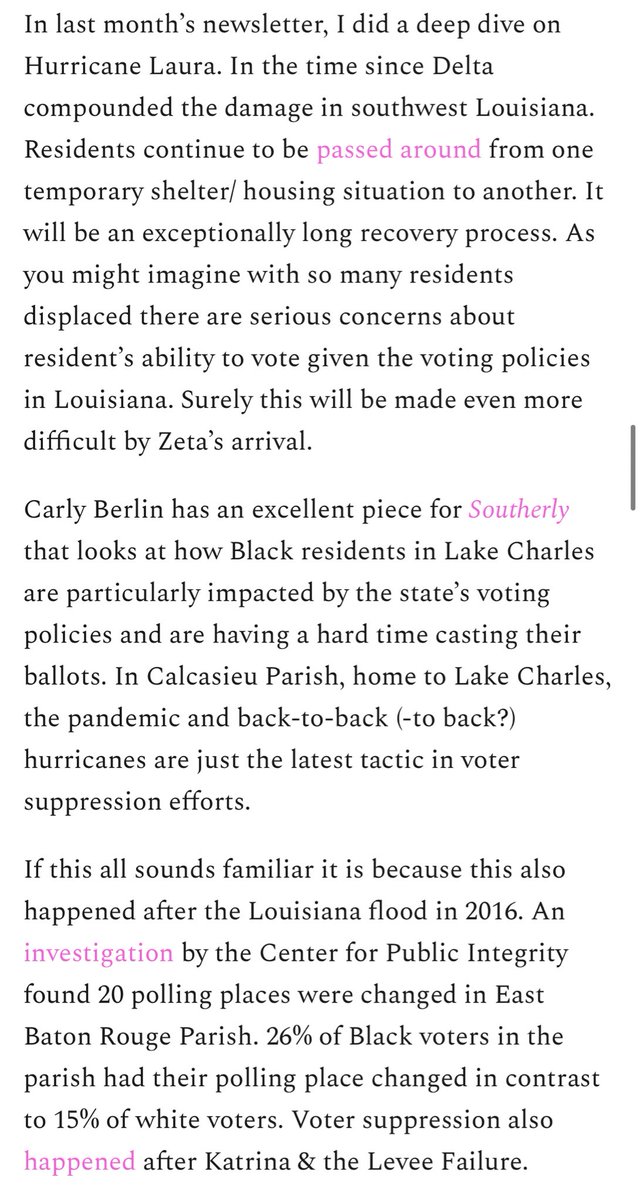
They're also not connecting this to broader issues with our approach to emergency management.
If you're new around here (hi, welcome) and here's a thread on how democrats (including Biden) love to ignore emergency management.
If you're new around here (hi, welcome) and here's a thread on how democrats (including Biden) love to ignore emergency management.
https://twitter.com/DoctorVive/status/1362045307270348801
I often get comments about how my criticism of various democrats re: disasters is unfair because "at least they aren't Trump". 😅
Sure, democrats are not chucking paper towels at people but they also are not doing an effective job of meeting disaster-related needs.
Sure, democrats are not chucking paper towels at people but they also are not doing an effective job of meeting disaster-related needs.
What is happening right now is, unfortunately, a perfect example of why elected officials (national and local) need to explain the causes of disasters AND what they are going to do to prevent them in the future.
We're not out here criticizing politicians because it's fun. People's lives are at stake.
During the campaign, there was NO democratic candidate who hit even the most basic emergency management checkmarks (Castro came closest!)
disaster-ology.com/blog/2019/10/1…
During the campaign, there was NO democratic candidate who hit even the most basic emergency management checkmarks (Castro came closest!)
disaster-ology.com/blog/2019/10/1…
After every single climate town hall/ debate I pointed this out. When disasters were mentioned it was the same inaccurate and inadequate narratives again and again.
theweek.com/articles/86383…
theweek.com/articles/86383…
I was literally pleading with journalists to ask Biden about EM policy.
disaster-ology.com/blog/2020/9/18…
disaster-ology.com/blog/2020/9/18…
So, fine, we looked at Biden's plans ourselves. Not only wasn't there much about emergency management (and how it connects to climate) but what was there didn't make any damn sense. It was so bad that we couldn't figure out what they meant. disaster-ology.com/blog/2020/7/16…
When EM experts raise these concerns among climate folks we're often waved off.
Take a listen to the reaction of this podcast episode I did for Climate 2020 (min 20) where they said I was being "unfair" to Biden for saying he needed to include EM.
climate2020podcast.com/episodes/episo…
Take a listen to the reaction of this podcast episode I did for Climate 2020 (min 20) where they said I was being "unfair" to Biden for saying he needed to include EM.
climate2020podcast.com/episodes/episo…
This is why I had what is ultimately a very bleak prediction of what the next four years of the Biden administration will look like re: emergency management.
The kinds of changes we need take TIME which is the one resource we don't have much of.
disaster-ology.com/blog/2021/1/19…
The kinds of changes we need take TIME which is the one resource we don't have much of.
disaster-ology.com/blog/2021/1/19…
FEMA isn't even on the Climate Task Force. Why? There's no possible justifiable reason for their absence when they're literally on the frontlines of managing the consequences.
https://twitter.com/SamLMontano/status/1360037739337498629
We need elected officials to do more than this. They have to treat disasters as the urgent and growing problem that they are -- including their causes. You can't just talk about EM when we're in the middle of a response. That's the same reactive BS that we've always done.
So, sure, democrats tend to be better for emergency management and disaster policy. (This isn't MY opinion, BTW: researchgate.net/profile/Naim_K…)
That doesn't mean that everything is going fine, though.
That doesn't mean that everything is going fine, though.
• • •
Missing some Tweet in this thread? You can try to
force a refresh




